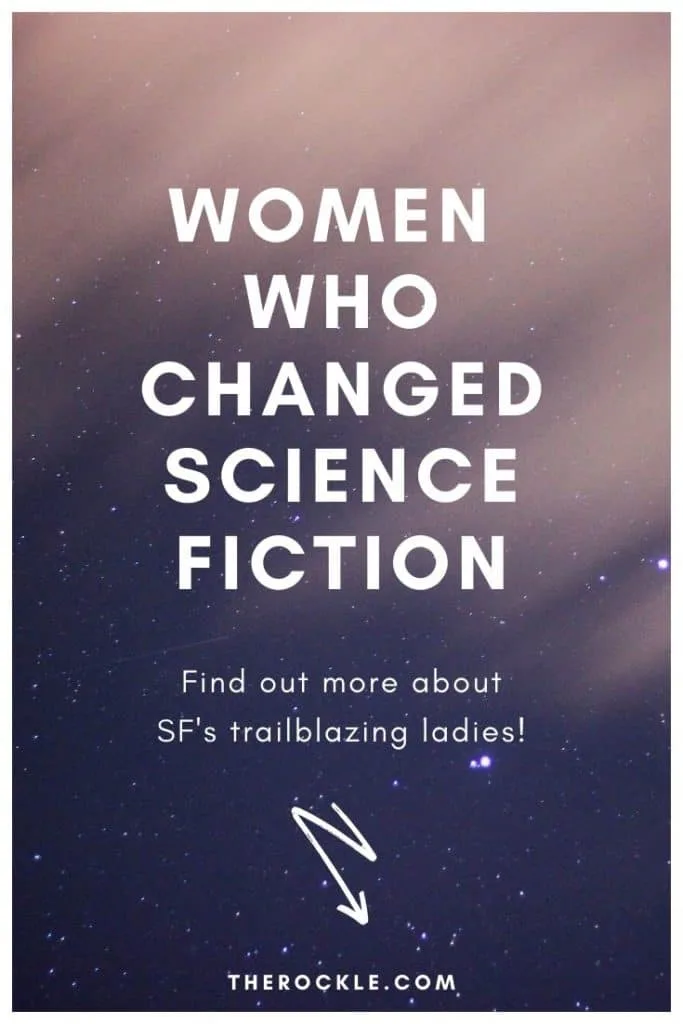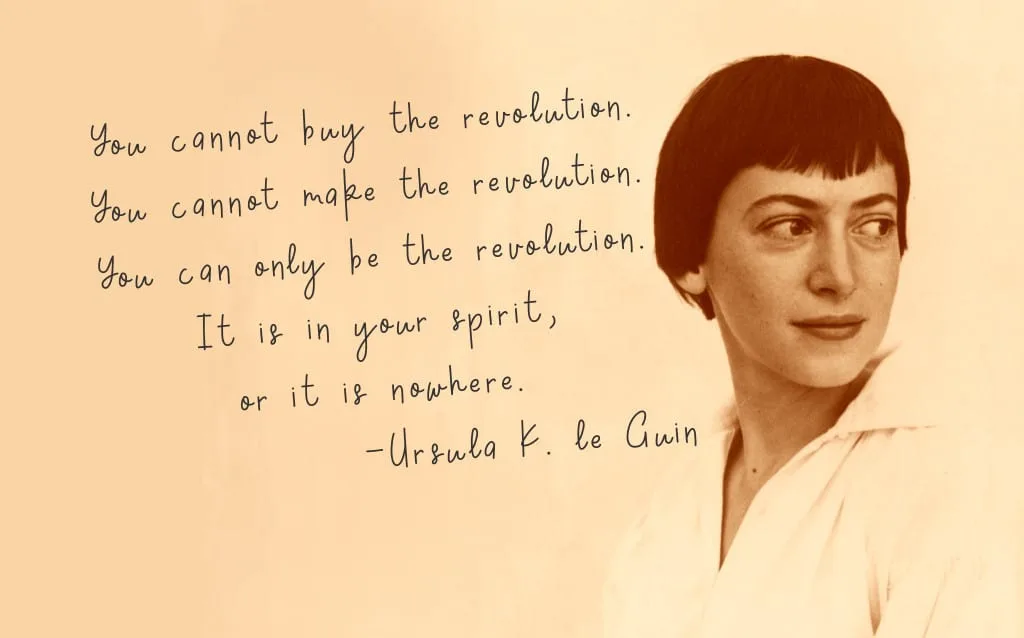The history of sci-fi owes a debt of gratitude to women. In fact, female science fiction authors shaped the genre as surely as their male counterparts.
From the early explorations of science and human nature in Mary Shelley’s Frankenstein to Octavia E. Butler’s detailed social criticism in Kindred, women broke down barriers and revolutionized the genre.
So, we decided to scratch the surface and put together an honor roll of the sci-fi pioneers.
Of course, this is not an exhaustive list of female science fiction authors who made their mark on the genre.
The authors listed below are just a few examples of brilliant minds whose legacies extend far beyond the pages of their books.
TRAILBLAZING FEMALE SCIENCE FICTION AUTHORS
MARY SHELLEY
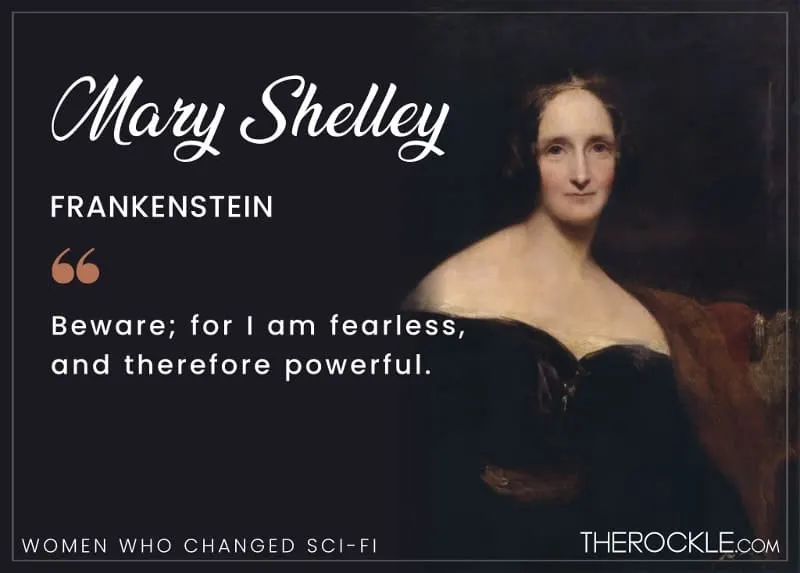
Before she even turned 20, Mary Shelley conceived the classic tale that sparked the science fiction genre.
The author also introduced some of the most popular sci-fi archetypes, such as the “mad scientist” and the “creature”.
Over two centuries later, the impressive impact of Frankenstein, or the Modern Prometheus stays even; the novel’s central figure strode off the page and into popular culture, and Shelley’s lifework was never out of print.
URSULA K. LE GUIN
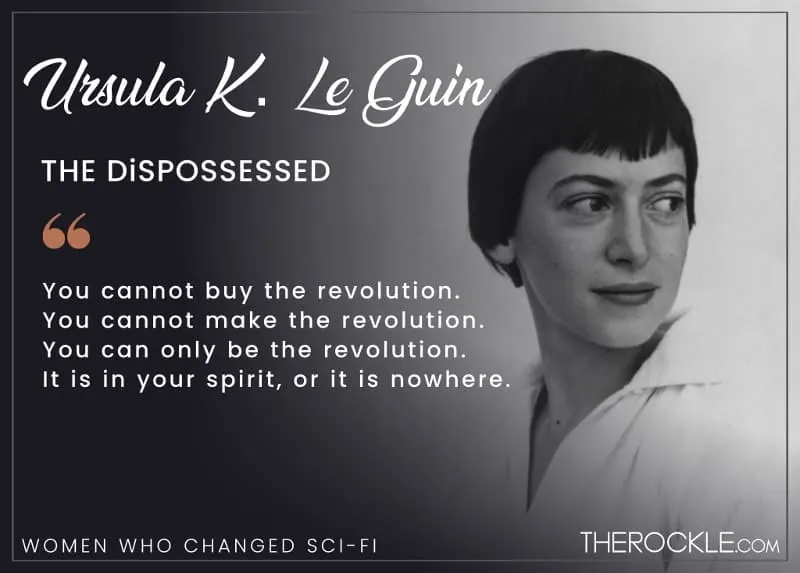
During a career spanning five decades, Le Guin wrote groundbreaking books like The Dispossessed and The Left Hand of Darkness.
Her work not only explored socio-political issues but also marked the beginning of a progressive era in sci-fi.
The legendary science fiction author influenced generations of readers and writers and wrote about a boy wizard in Earthsea decades before Harry Potter.
She believed that science fiction is, above all, the literature of ideas, and was an unwavering defender of the genre.
OCTAVIA E. BUTLER
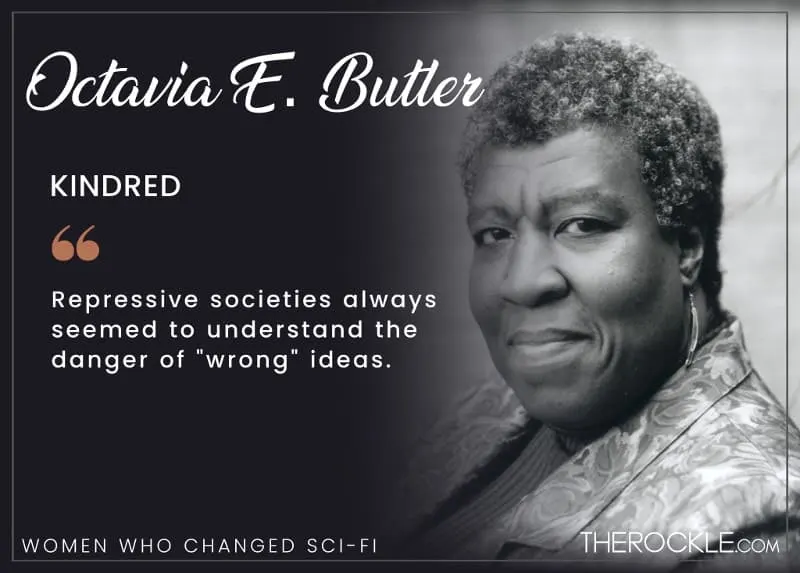
Butler was the first African-American woman to gain prominence as a major SF writer.
She also transcended the genre conventions by addressing racial injustice, women’s rights, and environmental and political issues.
The multi-award-winning novelist saw her core audience as black readers, feminists, and science fiction aficionados. With this in mind, she pushed herself to produce a body of work that they could access.
Butler wrote a number of seminal novels, including Kindred, Wild Seed, and The Parable of the Sower.
Furthermore, her work helped to lay the foundation for Afrofuturism literature.
CONNIE WILLIS
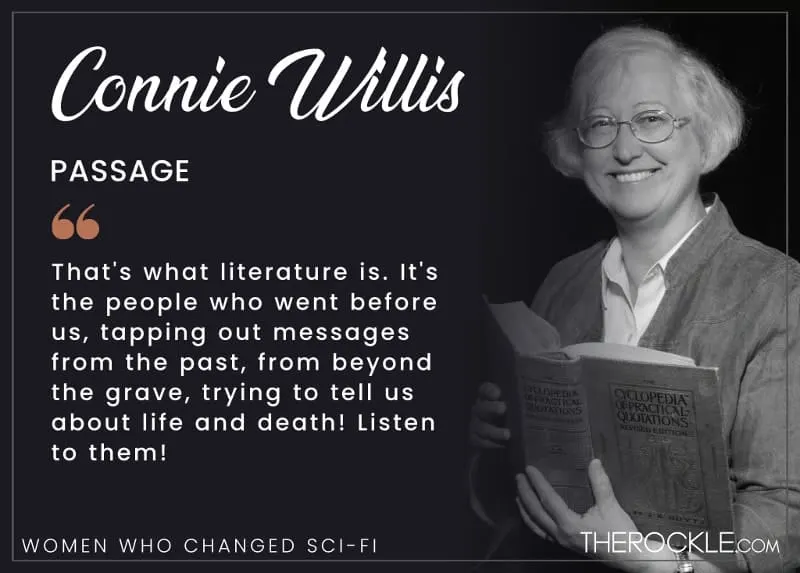
With 11 Hugos and 7 Nebula Awards to her name, Willis is the most honored science fiction writer.
Known for her well-researched, insightful, and frequently satirical writing style, Connie Willis amassed a significant following among colleagues and fans alike.
SFWA Grand Master and a sharp humorist is the author of novels such as Doomsday Book and Passage.
She also wrote a vast amount of short fiction, including the “Firewatch.”
JOANNA RUSS
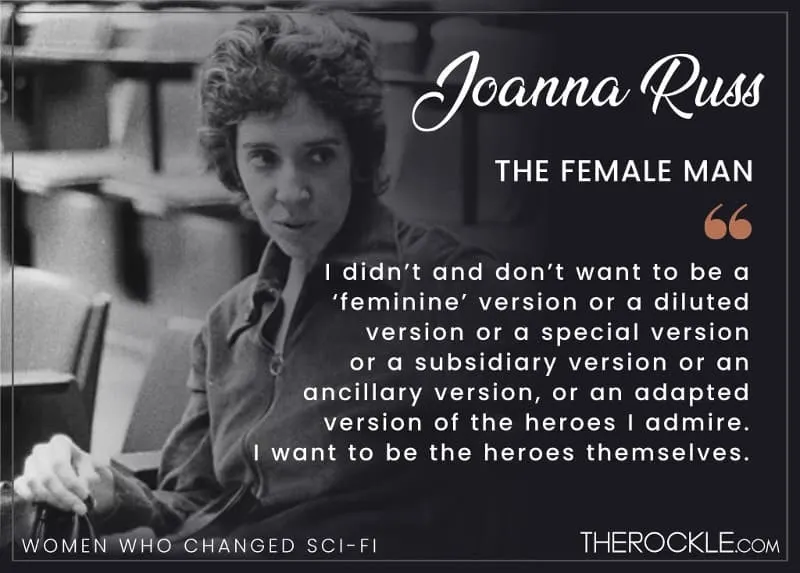
Joanna Russ introduced a feminist twist to the sci-fi genre.
She challenged the male-dominated culture by positioning the female protagonist outside of any relationship with the western male identity.
At the same time, Russ used her platform to address sexism both within sci-fi stories and the author community.
The Female Man, her best-known work, is a seminal work of science fiction and feminism.
The outspoken author also won several awards for her work, including the Nebula and Hugo Awards.
JAMES TIPTREE JR.
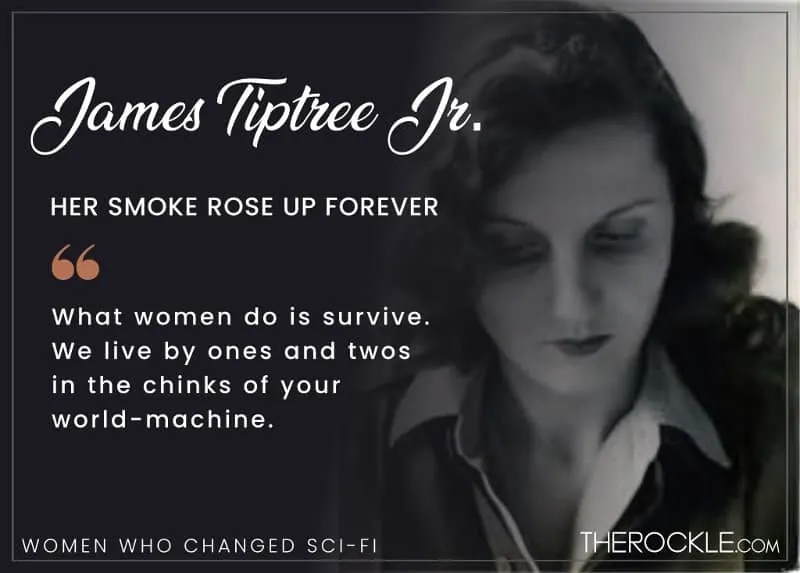
Before their true identity was revealed, Alice Sheldon rose to prominence as James Tiptree Jr.
Even though writing under a pseudonym was nothing new, it had a more significant meaning for Sheldon.
By inhabiting their alter-ego, the writer discovered their voice and contributed to breaking down the imagined barrier between men’s and women’s writing.
Sheldon/Tiptree received numerous honors, including the Hugo and Nebula, as well as induction into the SF Hall of Fame.
PAT CADIGAN
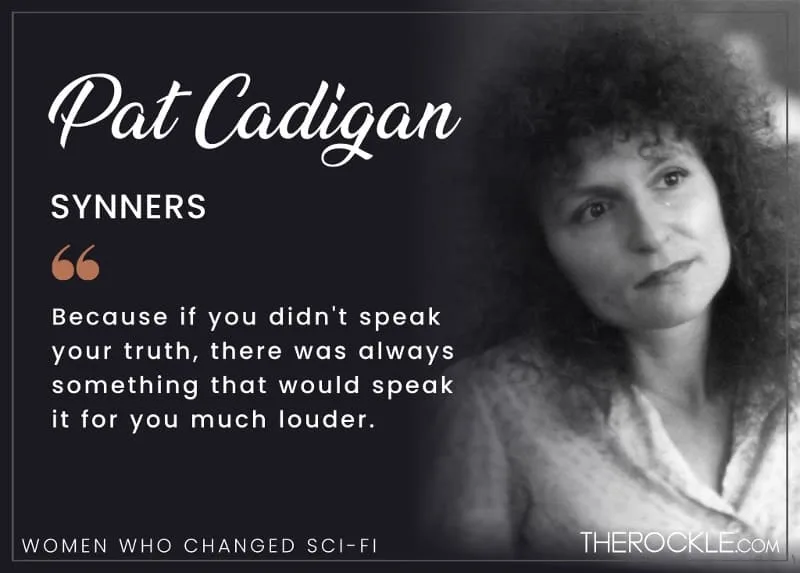
Cadigan shot to fame as a science fiction writer during the heyday of the cyberpunk movement.
Despite the fact that the genre was very much a boys’ club, she established herself as one of its leading figures.
Even though she’s often referred to as “The Queen of Cyberpunk”, the author didn’t confine herself to the genre-specific themes.
Cadigan won many accolades, including the Hugo and two Arthur C. Clarke Awards for Synners and Fools.
ANNE McCAFFREY
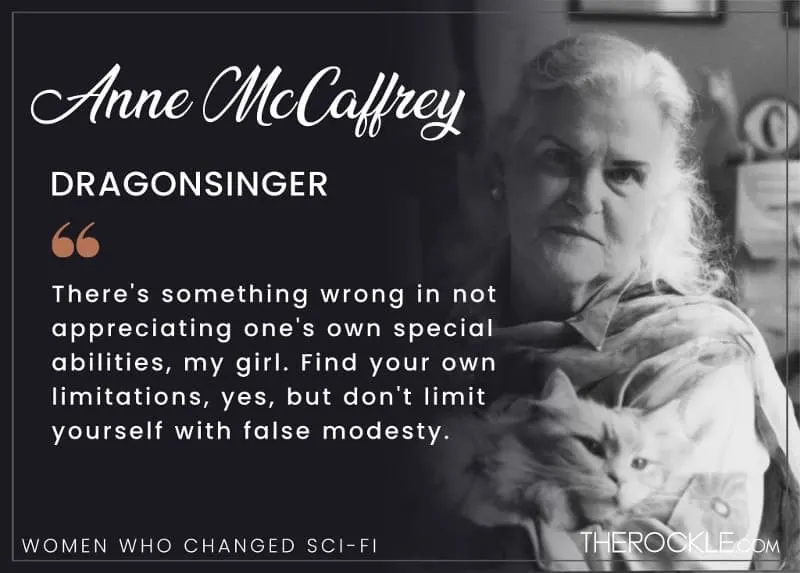
McCaffrey kicked off her stellar career in the 1960s and was one of the very first great sci-fi writers.
She made history as the first author to hit the New York Times best-seller list with an SF title.
Additionally, she was also the first woman to win the Hugo and Nebula awards.
One of the greatest female science fiction authors ever is best known for her long-running Pern series.
MARGARET ATWOOD
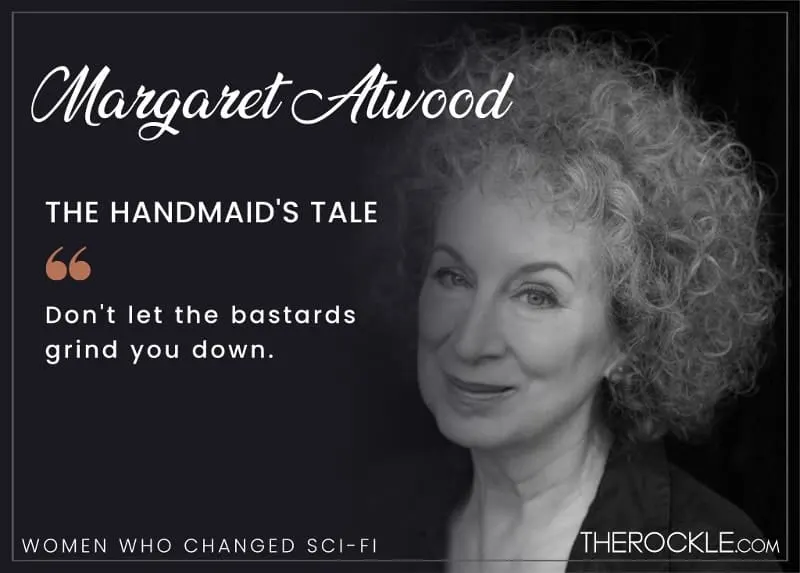
Margaret Atwood won the very first Arthur C. Clarke Award for her novel The Handmaid’s Tale.
However, Atwood prefers her dystopian future books not to be labeled as science fiction.
Whether you agree or not, it’s safe to say that her influence and readership span far beyond any genre.
TV version gave The Handmaid’s Tale its pop-cultural due and opened the way for adaptations of other feminist classics.
SEE ALSO: Margaret Atwood’s Most Powerful Quotes
ANN LECKIE
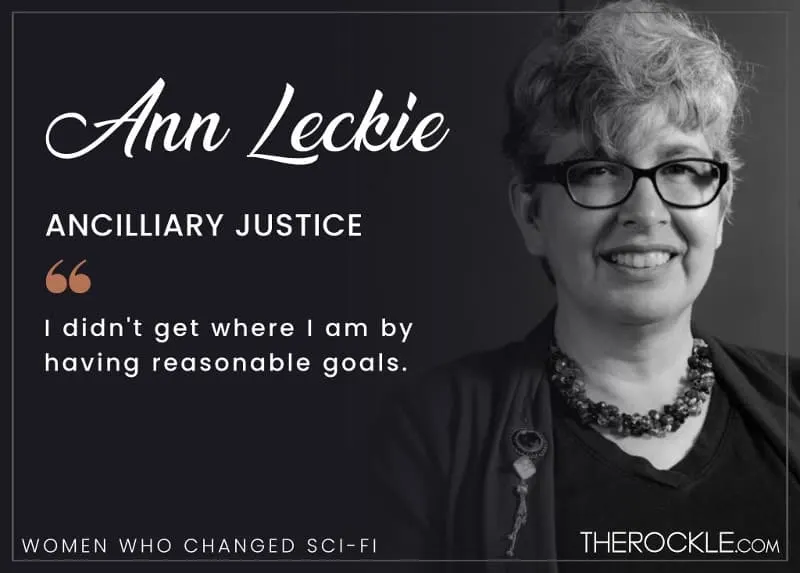
Ann Leckie’s Imperial Radch trilogy is unquestionably a part of SF history.
Her books not only won all the major awards but also expanded the understanding of gender. But that wasn’t all Leckie had in store for us.
With her recent SF novel, Provenance, she continued to push the genre’s boundaries and challenge commonly-held gender notions.
